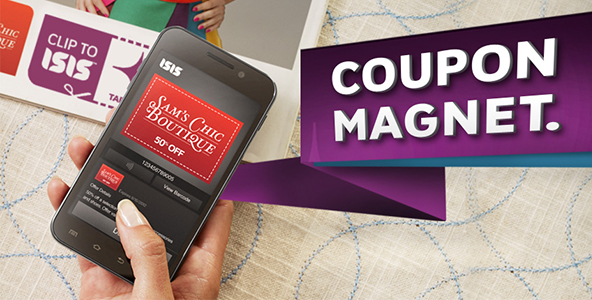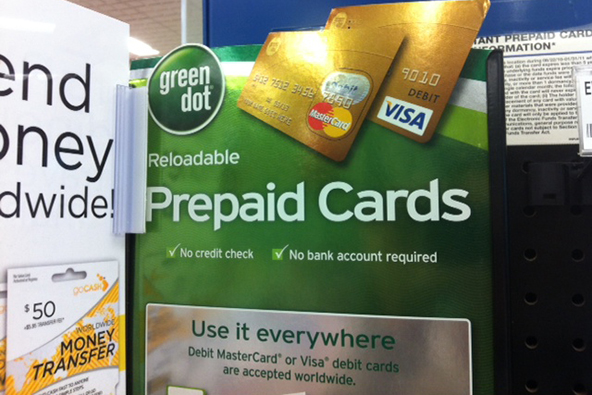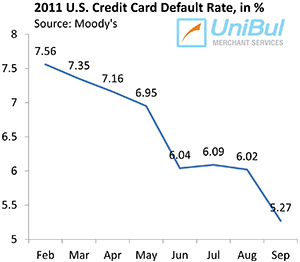First Impressions: Isis Mobile Wallet Is Giving Us Nothing New

That is the gist of the verdict passed by Austin-based Justin Boyle in a piece for MoneyBlueBook.com. As you may know, Isis—the mobile payments platform developed by telecommunications giants Verizon, AT&T and T-Mobile—was launched with much fanfare in Austin and Salt Lake City as a pilot in October and the first reviews have now started to trickle in.
Regular readers know that at UniBul we have been very critical of Isis: the project’s original version was incredibly ill-conceived, the management was consistently slow in making much needed adjustments to their continually deficient business plan and the pilot’s launch date was pushed back on multiple occasions. In contrast, Google Wallet went live in September of last year and had the field all to itself for more than a year, before Isis made its appearance. While it is true that Google Wallet hasn’t exactly managed to take the world by storm, the search giant’s engineers did manage to work out their wallet’s security issues and the marketing guys have been busy polishing the rough edges of their offering. Yet, it is still early days and the contest for mobile wallet supremacy is wide open, so Isis may yet be able to turn things around.
Isis Mobile Wallet
Before we move on to review Boyle’s impressions of the new service, let’s briefly pause to recall what Isis was supposed to do in its present incarnation. So the start-up is a joint venture formed by AT&T, T-Mobile and Verizon to develop a mobile wallet in which users could store their credit and debit cards and, in time, other payment instruments as well. The account information is stored into the phone’s SIM card and is PIN-protected. Whenever a user wants to use Isis to make a payment at a participating merchant, the Isis app would connect to the merchant’s point-of-sale (POS) system to facilitate the transaction. The connection is effected through the near-field communication (NFC) technology, which is perhaps the most controversial link in the system. Some observers have expressed security concerns with the technology, but by far the biggest NFC-related issue is that the vast majority of the POS systems in current use are not NFC compatible and a full-scale deployment of compliant terminals would be hugely expensive and time-consuming.
Now let me briefly remind you what Isis was supposed to achieve, as initially stated by the company. In addition to the three huge carriers, Isis had two other founding members: Discover—the fourth-largest U.S. credit card network—and Barclays—a large British bank. The objective was to create a nationwide mobile commerce platform that would allow users to make NFC-based mobile payments at participating merchants, much as it currently stands.
But it was supposed to be much more than that. The start-up was never quite explicit about the exact set-up of its business structure and apparently for good reason, as in hindsight it seems very likely that its executives may not have had much of an idea of what they had got themselves into. Still, there were enough bits and pieces that allowed us to make educated guesses. We were hearing that Isis executives were talking about building their own payment network and that in itself was quite revealing of just how unprepared they were for the task at hand. I mean, even leaving the enormity of such an undertaking aside, initially it was also stated that Isis payments would be processed on Discover’s network, which, by the way, would have automatically excluded all other card brands (i.e. Visa, MasterCard, American Express, etc.) from the venture, as their card payments are processed on their own networks. Barclays, for its part, was “expected to be the first issuer on the network, offering multiple mobile payment products,” according to the original press release that announced Isis. Now, why Barclays was needed in the first place is unclear, as Discover not only processes but, unlike Visa and MasterCard, also issues its cards. Anyway, that was the plan.
Initial Impressions
Now let’s hear what Boyle has to say about his Isis experience. Well, here it is:
All in all, Isis Mobile Wallet seems to feature garden-variety touchless payment functionality with some installation drawbacks and scant rewards incentives (aside from compatibility with some of the credit card reward programs you already use). So far, Isis isn’t showing us anything new, other than its hardware requirements.
Not exactly a glowing review. But then, given the platform’s history, that is not exactly surprising. Still, if Isis is to stand any chance of winning over the American consumer, the joint venture should at least manage to gain a neutral review. As of now, they are not even close to achieving such an objective.
The Takeaway
So Isis continues to overpromise and underdeliver. In September I wrote that
Isis… has been an unqualified fiasco, marred by a spectacularly botched initial design and a series of embarrassing launch delays, including the latest one announced just a couple of weeks ago.
I have seen nothing new to persuade me to reassess my view.
Image credit: Isis.


